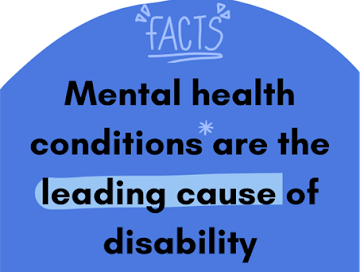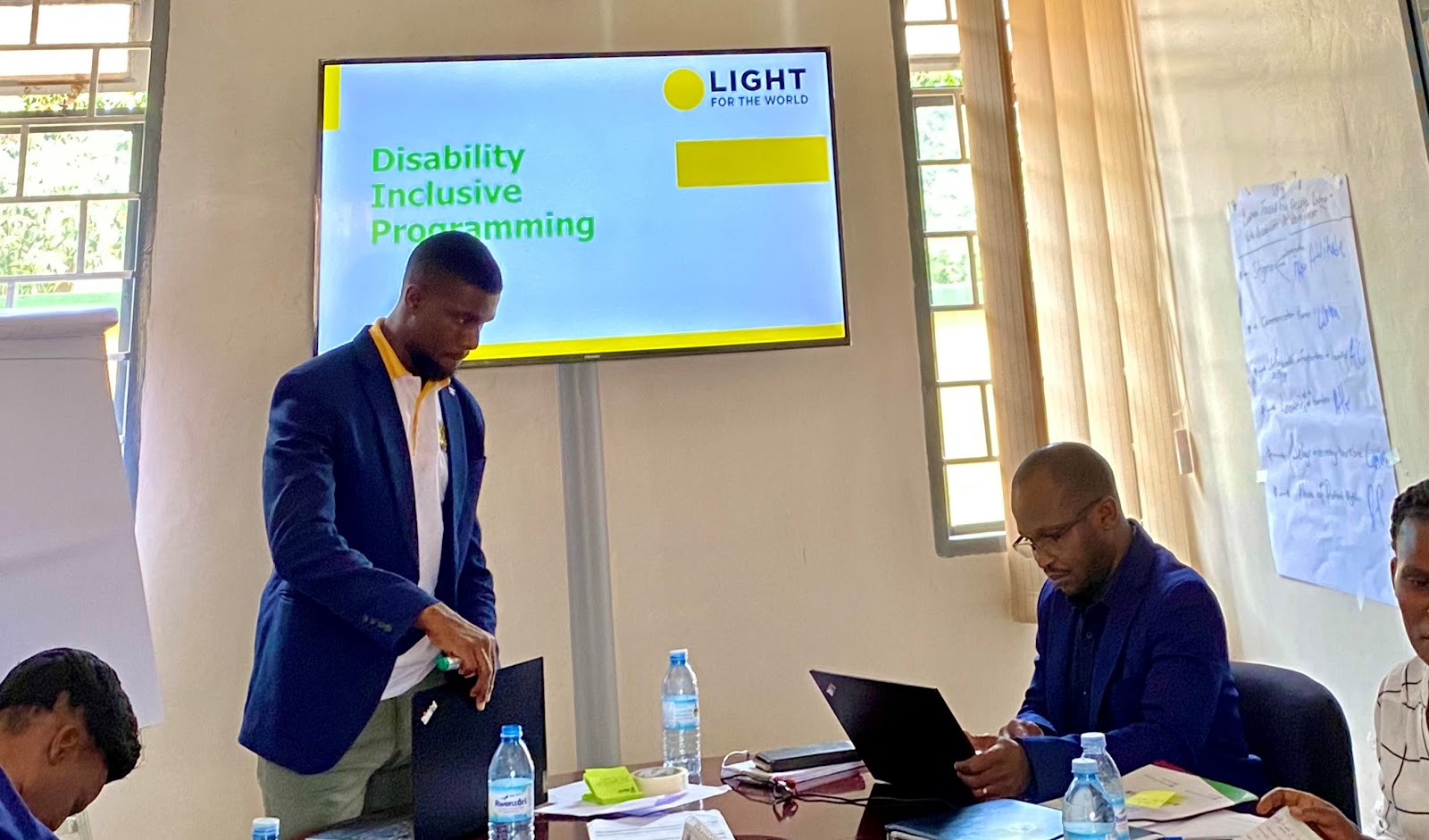Differentiating Mental health Disorders and Mental Impairments
May is Mental Health Awareness Month.
Globally an estimated 284 million people experience mental
health challenges, Making it the most prevalent health disorder. According to the Global Burden of Disease study. It estimated that 792
million people live with a mental health disorder.
This month of May is celebrated by creating
awareness on mental health distresses and fueling up ongoing efforts to reduce
the stigma around mental health conditions by sharing personal experiences. It’s
an absolute fact that many people worldwide suffer in silence because of misconceptions
about mental illnesses. and for the many in developing countries these conditions
go untreated.
As a Disability inclusion Advisor. I feel like it has never
been more pertinent than now for society to understand the differences
between mental Impairments and mental health distresses. Realizing
this will help everyone to recognize the role mental health plays in our society,
improve our well-being and stimulate the value of helping those in need to receive
treatment.
Diving into this discussion many require us to first understand
these two terms “Impairments Distresses”
Whereas Impairment refers to diminishment or
loss of functioning in a body part or system, a distress implies
an external and usually temporary state of being in agony which may cause physical
or mental strain and stress. From the above definitions we see that the two are
different but interlinked. Now that you know these.
The following definitions will help you to distinguish
between the different mental problems, spanning from normal everyday mental
problems to severe psychopathology and how they can be managed:
Mental impairments
Mental impairments are a group of invisible brain disorders characterized by difficulty in cognition and self-care. some are assessed and treated by psychiatrists and others can be managed by medication.
They are only qualified as impairments in case they have had a long-term impact on an individual and destabilize their day today functionality and productivity.
Unfortunately, psychiatry has not found useful biological
markers to help diagnose and cure all mental impairments. If you have a milder
mental disorder, such as anxiety or depression, then you may start off with
psychotherapy, and if that does not suffice alone, then prescription medication
may augment the psychotherapy. For more severe mental disorders such as
schizophrenia and bipolar disorders, prescription medication treatment is the
primary treatment, then once stabilized from acute illness, then psychotherapy,
coaching, or helping with activities of daily living may be indicated.
Mental distress
Mental distress is something everyone experiences. It is
part of everyday life, and we all have our daily mishaps and disappointments.
For example, maybe your car won’t start in the freezing winter weather. Or
maybe a colleague was mean and nasty to you at work. Mental distress is normal,
and a part of everyone’s life. Usually, you can cope with mental distress and
just work through it yourself. If the mental distress is more severe, then you
might go and talk with a friend or your mentor or your parents.
Mental health problems
Mental health problems occur when you have a major set-back
in your life. Maybe your dog died. Or maybe you had a breakup with your boyfriend
or girlfriend. Maybe you are having marital problems and getting separated or
divorce. Maybe you lost everything and are going bankrupt. Maybe you got fired
from you job. These major setbacks are faced by many of us, and these personal
losses can cause significant distress. If you have mental health problems, you
may need to see a counsellor to talk through your problems and bolster your
coping skills.
How to manage Mental health Disorders from becoming Impairments ( Disabilities).
In case you ever
find yourself in a situation that is challenging you mentally. My humble advice
to you is practice mindfulness by paying attention to the present moment.
Paying more attention to the present moment can improve your
mental wellbeing. This includes your thoughts and feelings, your body and the
world around you. Some people call this awareness "mindfulness".
Mindfulness can help you enjoy life more and understand yourself better. It can
positively change the way you feel about life and how you approach challenges.
Godfrey Nanyenya
Disability Inclusion Specialist




Comments
Post a Comment